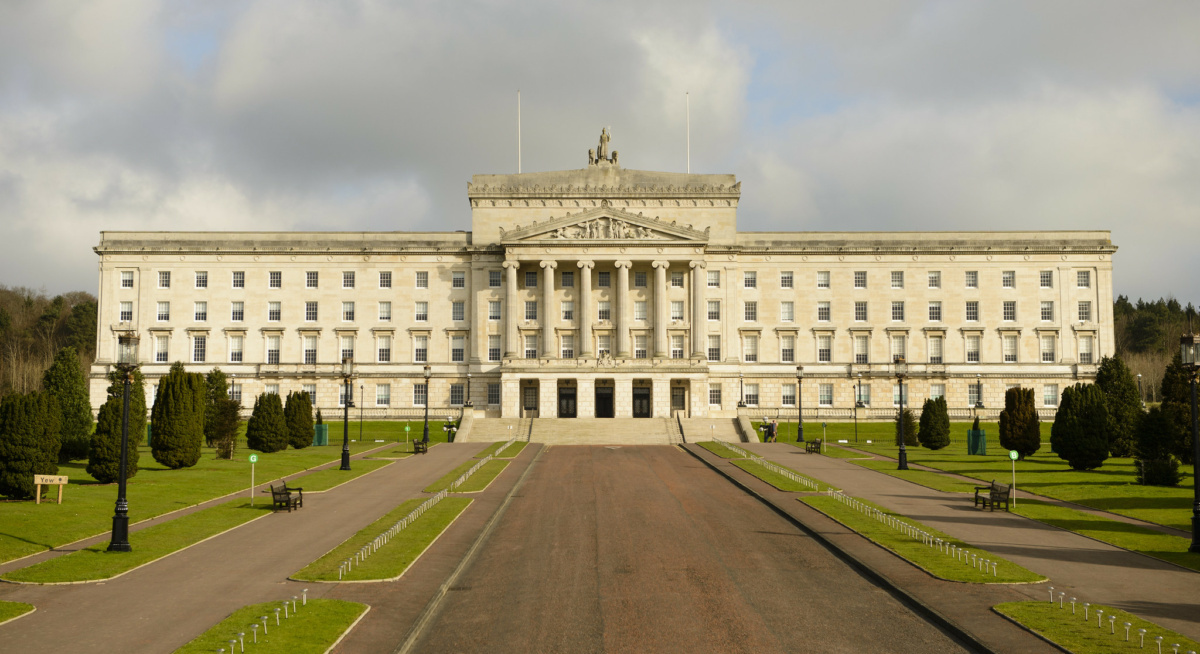
After a two-year hiatus for Northern Ireland’s political institutions, the Democratic Unionist Party has agreed with the UK Government a package of reforms to trade mechanisms between Great Britain and the province. The agreement clears the way for the restoration of the region’s political institutions, the Executive and the Assembly at Stormont. The deal is significant for businesses operating in and into Northern Ireland, but also holds notable political ramifications. With Rishi Sunak visiting Northern Ireland to trumpet the success of the deal today, we look at what it means for intra-UK trade and the political future of Northern Ireland.
What’s in the deal?
The most significant element of the agreement, set out in a command paper published by the Government on Wednesday, provides for “unfettered access” for goods coming from GB that are destined to be sold to consumers in NI, significantly reducing checks and paperwork on those goods. It is designed to address unionist concerns over the differences in customs arrangements for Northern Ireland and Great Britain creating a ‘border in the Irish Sea’, which they had seen as undermining the region’s place in the Union.
In practice, this means that there will be no routine checks and customs paperwork on goods moving between GB and NI that are intended for consumption in NI, provided businesses register with a ‘trusted trader’ scheme. Materials that are imposed for processing, like raw materials and components, will still face full customs checks. So, while it might be easier for businesses like retailers to send their goods to NI, certain parts of the economy – like heavy manufacturing – will still face some friction.
The rest is politics
While businesses will no doubt welcome these changes, what’s more important is the return of Stormont Assembly and the Northern Ireland Executive.
The region’s parties met late last week to discuss the key issues that the new Executive will face. Their to-do list is dauntingly long: two years without Government has left Northern Ireland suffering from widespread strikes over public sector pay, and the health service’s wait times have been soaring. The first item on the agenda will be setting the region’s budget in April. And while the £3bn bung the Government has promised will help fill some fiscal holes, there will be multiple acute demands across departments to fix the hangover from Stormont’s suspension. One of the new Executive’s first acts was to write to Westminster in Oliver Twist fashion, asking for more funding. While the UK Government has signalled a Dickensian tight-fistedness, the scrap over money is only just beginning.
Aside from policy questions, the moment has huge political significance. When Stormont voted to approve the formation of the Executive on Saturday it gave effect to what was an historic victory for Sinn Féin at the last Assembly election. Michelle O’Neill is now the first republican to hold the post of First Minister in the region’s history. Although the First and Deputy First Minister posts have equal powers, the symbolism of this moment, in a political community where symbolism counts for a lot, will not be lost on observers from either side of the region’s political divide.
That symbolism is compounded by the imminent possibility of Sinn Féin being in power on both sides of the border. The next election to the Republic of Ireland’s Dáil Éireann is due by March of 2025, and polls are showing the republican party firmly in the lead. The prospect of a Sinn Féin Taoiseach (Irish PM) in the South partnered with a Sinn Féin First Minister in the North is the stuff of unionist nightmares.
Never, never, never?
In this context, the DUP leadership is not out of the woods yet. There have already been signs of discontent from loyalist hardliners about Sinn Féin’s ascent. Firebrand campaigner Jamie Bryson has said that any DUP Deputy First Minister would be “debasing themselves” by entering into power-sharing with a Sinn Féin FM, and the chair of the Loyalist Communities Council – an umbrella group for loyalist paramilitaries – said that Sinn Féin’s taking up the position would be “anti-democratic”. There have been rumblings about the possibility of street protests organised in part by the paramilitaries, harking back to the days of the original Northern Ireland Protocol protests and street disorder in early 2021.
Whether Jeffrey Donaldson can keep his unionist coalition together as the implementation of the deal and the resurrection of Belfast’s political institutions continues remains to be seen. But the province will be holding its breath, hoping that government can be restored – and public services fixed – without major incident.
Read more Insights & News
